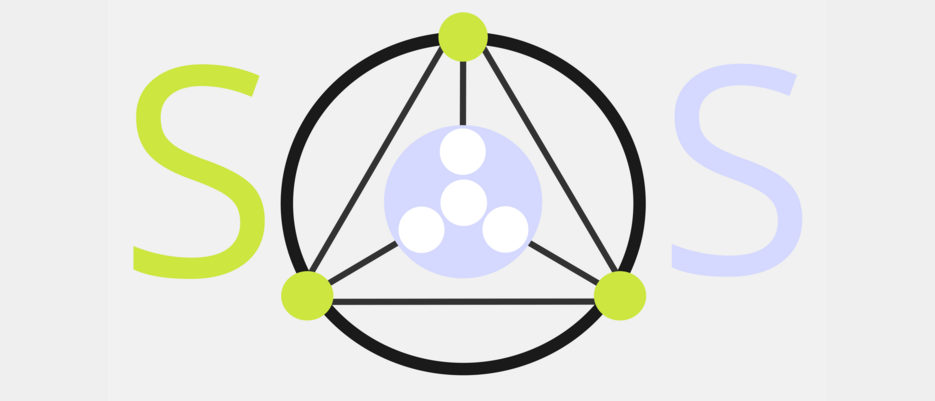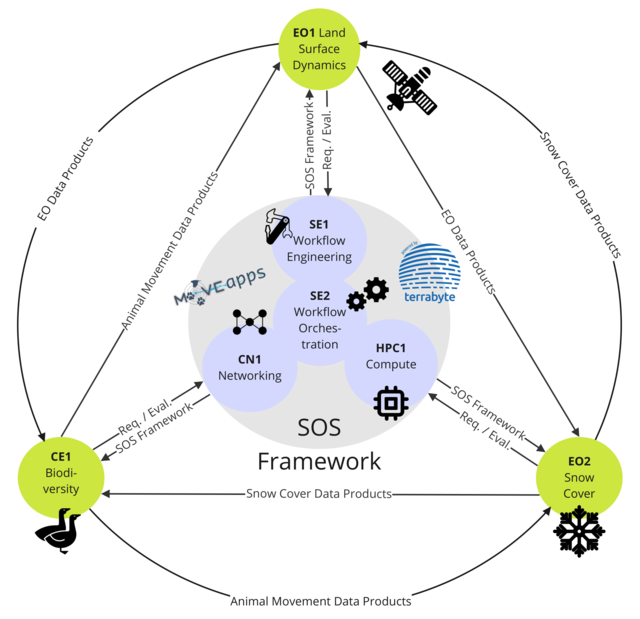SOS: Serverless Scientific Computing for Earth Observation and Sustainability Research (DFG)
01/01/2025Our research group develops a framework for serverless scientific computing to make large-scale Earth observation (EO) workflows more reusable, reproducible, and accessible. By combining computer science, geosciences, and ecology, we aim to automate and simplify the processing of petabyte-scale, heterogeneous satellite and environmental data—removing technical barriers for researchers. This interdisciplinary approach opens new opportunities to study pressing sustainability questions, from climate impacts on snow cover to biodiversity shifts driven by land surface dynamics.
Description:
Modern research in the area of earth observation (EO) and sustainability poses challenges on the computing, storage, and communication infrastructure needed to analyze the huge volumes of data obtained from remote sensing systems. To develop, run, optimize, and maintain EO processing workflows, geoscientists nowadays need to have both in-depth domain knowledge as well as extensive skills in data science and IT systems. Workflow developers face the challenges of inconsistent terminology, a vast number of algorithms, contradictory recommendations, non-transparent data (pre-)processing, and the lack of standards for workflow specification and data exchange. This results in very limited code and artifact reusability as well as poor result reproducibility. Moreover, the integration and scalable processing of huge data volumes (up to Petabytes) from multiple distributed and heterogeneous sources poses a significant entry barrier for geoscientists. The main goal of this Research Unit (RU) is to develop a framework composed of a set of methods, models, and architectures as a foundation for serverless scientific computing and engineering, addressing the described challenges. Serverless computing refers to the evolution of cloud computing towards higher-level abstractions of computing, storage, and communication resources.
More specifically, the RU will pursue two main goals: (1) enabling application-level automation, sharing, and (third-party) reuse of EO workflows - including workflow designs, implementations, and research data across projects, teams, application domains, and organizations and (2) removing the technical entry barrier for the development and execution of complex high-volume EO workflows with multiple distributed and heterogeneous data sources. We envision a component-based workflow engineering methodology supporting the composition of complex processing workflows from ready-to-use generic or domain-specific components without requiring expert knowledge in their used algorithms and internal implementation details. We believe that these goals can only be addressed in collaboration between computer scientists, geoscientists and ecologists in an interdisciplinary setting.
To this end, part of the RU is led by geoscientists and ecologists. This part includes domain-specific research objectives as follows: (a) investigate the impact of land surface dynamics on the movement pathways of migratory animals, as a basis for predicting future space use and species composition and (b) investigate the impact of climate change on snow cover and snowmelt dynamics. Overall, we expect to see a major impact in the field of scientific computing and engineering for EO and sustainability research, significantly boosting the productivity within the domains while opening up manifold opportunities for novel interdisciplinary research beyond the boundaries of remote sensing and computational ecology.
People involved: Samuel Kounev, Nikolas Herbst, Lorenz Gruber
Project page: https://dfg-sos.de/
Project start: 2025
Project end: 2028
Back




